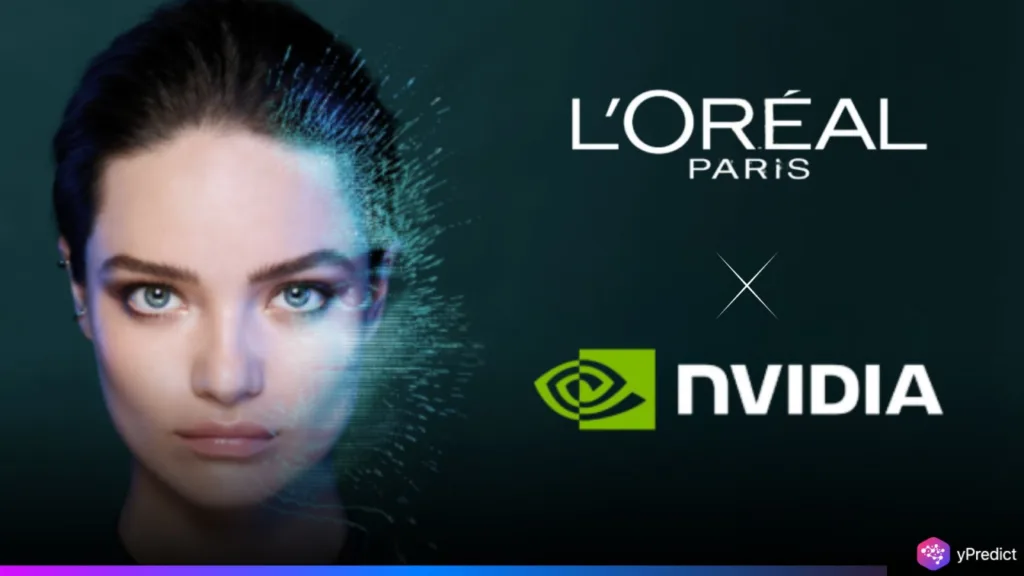
In a groundbreaking move highlighting beauty and tech convergence, L’Oréal partnered with Nvidia to deploy advanced AI across global operations. The L’Oréal–Nvidia Partnership seeks to transform the beauty industry by using Nvidia’s AI Enterprise platform to enhance personalization and product innovation. It also supports more efficient content creation, enabling L’Oréal to deliver tailored beauty experiences at unprecedented scale and speed.
As the demand for hyper-personalized experiences grows, this partnership positions L’Oréal at the forefront of AI-driven beauty tech, setting a new standard for digital transformation in the cosmetics sector.
Transforming Beauty Through AI
L’Oréal has announced a strategic partnership with Nvidia to accelerate its artificial intelligence capabilities in marketing and consumer experiences. The collaboration will enhance product personalization efforts by integrating advanced tools from Nvidia’s AI Enterprise software suite across operations. L’Oréal and its partners can now build and scale intelligent applications faster, more accurately, and with improved data security measures.
Asmita Dubey, Chief Digital and Marketing Officer of L’Oréal Groupe, said in a statement that,
Now is the time to scale. Finding the product is changing. Purchasing is changing. Loyalty is changing. There are so many things changing with AI.
The L’Oréal–Nvidia partnership positions L’Oréal to drive large-scale transformation across the beauty industry through advanced AI integration. By using Nvidia’s GPU-optimized microservices, L’Oréal plans to accelerate AI tool development across its global operations and product lines.
With Nvidia’s robust AI infrastructure, L’Oréal will scale generative AI and 3D content tools for product innovation and personalization. This strategy enables immersive virtual experiences, reshaping how consumers engage with beauty products in digital environments.
Driving Scalable AI Applications Across the Beauty Value Chain
The collaboration will initially focus on two key areas, including content creation and product recommendation.
L’Oréal’s in-house generative AI platform, CreAItech, will integrate Nvidia technology to improve its 3D content rendering capabilities. The technology allows users to create highly realistic pictures and videos for marketing campaigns by leveraging digital twins of physical objects. CreAItech, which is now powered by models such as Stable Diffusion from Stability AI, Google’s Imagen, and Adobe Firefly, will benefit from greater scalability and speed thanks to Nvidia infrastructure.
Additionally, L’Oréal is enhancing its AI-powered recommendation engine for Noli, a digital-first beauty marketplace the company has incubated internally. Developed with Accenture and deployed on Microsoft Azure using Nvidia AI Enterprise, the system analyzes detailed user profiles and preferences.
It considers factors like skin type, hair texture, and product ingredients to generate highly personalized cosmetic recommendations for shoppers. The updated engine improves both speed and accuracy, reshaping how consumers interact with online beauty platforms and cosmetic retailers.
Conclusion
The collaboration reflects a broader trend of AI integration across consumer-focused industries. L’Oréal, which has long invested in beauty tech through initiatives like its Technology Incubator and acquisitions of AR firms such as ModiFace, is now positioning itself as a leader in AI-led digital transformation.
As Nvidia’s Vice President of AI for Retail and CPG, Azita Martin, emphasized that,
Generative AI is bringing digital intelligence and agility to enterprises. By leveraging Nvidia AI Enterprise, L’Oréal is bringing rapid innovation, scalability, personalized marketing, and advertising that improve consumer engagement and conversion. L’Oréal, along with Nvidia, is unlocking the full potential of AI in beauty and making consumer beauty experiences even more seamless, rewarding, and fun.






